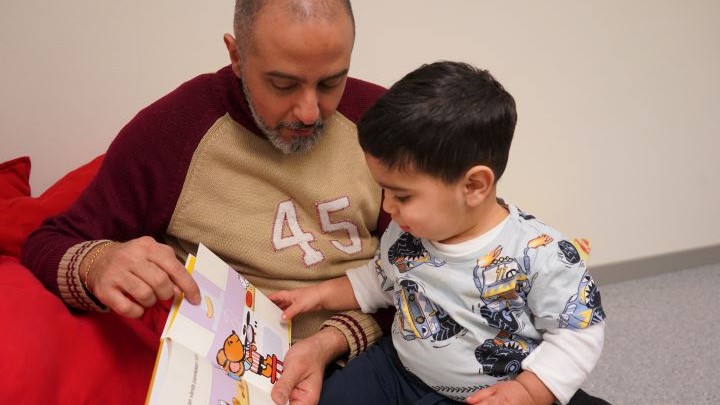Promoting Children's Early Language Development in Socioeconomic Disadvantage Areas
About this project
Project information
Inequalities in Language Development – A Critical Public Health Concern

Early language skills constitute a foundational component of children’s future academic achievement, social integration, and overall well-being. Children growing up in socioeconomically disadvantaged environments face an elevated risk of exhibiting delayed language development as early as 18 months of age. Such disparities may perpetuate a cycle of socioeconomic disadvantage, with far-reaching implications for population health. Consequently, the early identification and mitigation of inequalities in language development represent a key public health priority.
The project aims to evaluate a targeted intervention specifically designed to promote language development during the first two years of life. The study includes parents with infants participating in the extended home visiting programme within child health services in Stockholm.
By positioning parents as central agents in supporting their children’s early language development, the intervention seeks to promote equitable opportunities for growth and learning, irrespective of socioeconomic background. In the long term, this approach has the potential to reduce structural inequalities and contribute to improved health equity across the population.
Other sites with information about the project: Karolinska Institutet, Stiftelsen Marcus och Amalia Wallenbergs Minnesfond (Swedish only).
Researchers
Collaborators
- Karolinska Institutet
- Region Stockholm

